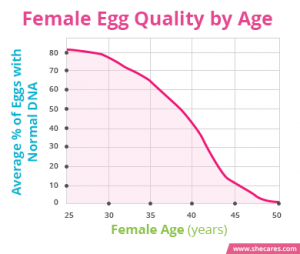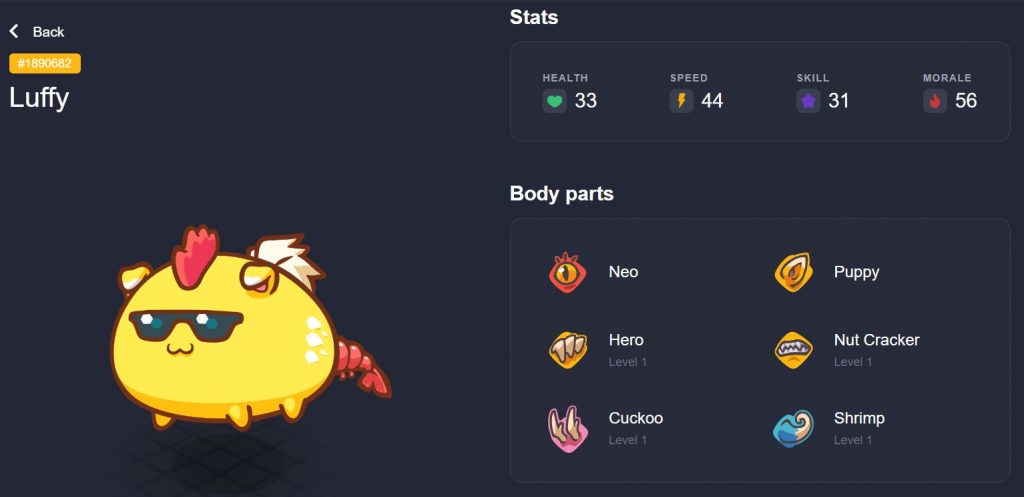What if sperm were uploaded — or perhaps, erm, unloaded — onto the Bitcoin network, and those seeking to become pregnant could turn the emotional, complex task into something more approachable, where they choose the right swimmers on the blockchain according to attributes like education level, hobbies and physical attributes?
Wei Escala is the founder and CEO of Eggschain, an Austin-based startup building a supply chain solution for the assisted reproduction industry. In vitro fertilization (IVF) is the process of implanting a fertilized egg into a woman’s uterus in order to induce pregnancy. This requires sperm, which is sometimes contributed by a partner and sometimes by a donor.
It’s part of a new breed of projects built on Stacks, a blockchain that shares a native connection with Bitcoin through proof-of-transfer, which “enables decentralized apps, smart contracts, and digital assets” to be settled and verified on Bitcoin blocks.Eggschain is one of these new decentralized apps, or DApps.
But why do sperm donations and embryo implantations need to be registered on a blockchain, to begin with? The answers lie in scalability for a seamless sperm selection process across various jurisdictions, not to mention high-level patient-data protection, guarding against loss or misfiling of data, and making the system more transparent overall.
If things go well, Eggshain’s blockchain-based matching solution may soon bear fruit around the world. It’s not here yet, but the revolution is coming.
Eggschain
Eggschain’s blockchain is secured by Bitcoin via Stacks, a Y Combinator-incubated startup “building a user-owned Internet secured by Bitcoin.” In practice, this means that Stacks operationalizes smart contracts and DApps, such as Eggschain, by synching up with Bitcoin on every 10-minute block to embed an indelible, permanent record.
Dear community, the moment we have all been waiting for.
We couldn't be happier to announce our first cohort of 25 startups building on Bitcoin w/ Stacks.
— Bitcoin Frontier Fund (@BTCFrontierFund) June 23, 2021
The Eggschain solution has not yet been released. “I don’t want to commit to a timeline,” Escala says, in part because, “We are among the first developers building on the Stacks blockchain.” This seems to be a reasonable answer, as it is common for blockchain projects to hit delays — whether caused by technical, legal or budgetary challenges.
While lower transaction fees influenced the choice to build on a Bitcoin sidechain instead of other chains like Ethereum, Bitcoin’s reputation as an incorruptible ledger was decisive. Bitcoin “will be around for hundreds or thousands or millions of years,” Escala says, as if stating a basic scientific fact. While speaking of millions of years can be written off as overzealous marketing, choosing a chain to track reproduction means backing the one most likely to survive far into the future.
“Bitcoin is the oldest blockchain in the world and very established, and the gas fees on Stacks are low compared to some of the other leading blockchains by a huge magnitude.
Escala explains that “When your sperm is donated, that is a transaction that gets hashed onto the blockchain,” complete with an indelible time stamp. Further transactions take place “when the sperm is implanted into a woman or into an egg.” The time between egg fertilization and implantation can stretch for years, and sperm has been kept frozen for as long as 22 years and still been used successfully.
In practice, this means that a donor will be able to see how many times their sperm has been used, giving them a rough idea of how many children they might have and in what general areas. This may even serve to gamify the sperm donation experience, even if the donor is not willing to ever be contacted by their offspring.

Though Bitcoin itself is a transparent blockchain that allows transactions to be traced back, Escala explains that Eggschain, as it functions with Stacks, cannot be “backtracked” in such a way that the “family tree” can be tracked up and down. This is by design, as “Just because someone received your donated sperm, it doesn’t give them the authority to read through your life — it is almost an invasion of your privacy,” according to Escala.
“Patient identifiable information cannot be on the blockchain.
Freezing desire
In India and much of Africa, it is normal for women to have their first baby by the age of 20. At 25, the United States represents the lowest mean age in the Western world, with the average first-time mother in countries like Germany, Singapore, Japan, the United Kingdom and Australia flirting with or even surpassing 30 — the age at which fertility begins to decline.
Though access to contraceptives and changed values contribute to the higher ages in the West, careers and finances often play a role. The pressure to delay pregnancy is all the more increased with the modern reality that career growth often requires frequent moving between offices and countries — though perhaps the work-from-home era will bring change.
Heath issues like cancer, which is rising worldwide, is another driver for the treatment, as woman seek to preserve their eggs before they are potentially damaged through chemotherapy treatment. All things considered, it is easy to see why many women are choosing to freeze their eggs — just in case they decline in quality or run out before they want to use them.

When her best friend chose to freeze her eggs in 2018, Escala “was a witness every step of the way — I felt like I almost lived through the entire experience.” In addition to a friend, however, she is a businesswoman, and she sensed an opportunity to improve the IVF process.
In June 2018, Escala founded Eggschain.
Breeding process
Provided there is no preselected partner, the process of choosing sperm — or more accurately, a sperm donor — is an intimate and difficult one. For one, donors need to be checked at “an established lab for STDs, HIV and any hereditary diseases,” with their sperm held in quarantine for often up to six months.
Depending on the sperm bank and the laws of the donor’s country, there is often extensive information available about the prospective donor, such as education level, hobbies and physical attributes — all of these attributes attached to the given sperm sample by way of Eggschain.

“I can say I want a sperm donor who has curly hair, and maybe a college degree — and ideally, this sperm donor plays violin,” Escala explains, listing attributes that can often be selected for. She also suggests that someone who likes basketball might choose a donor who is “of a certain height” and plays basketball.
All of these anonymous attributes can be added to the blockchain, effectively becoming the “stats” of the specific sperm, making selecting a sperm a smoother experience. While not remotely comparable to a serious medical procedure, the chain’s function has a metaphorical similarity to certain NFT-based games, where characters’ “DNA” is tracked on the blockchain as it get passed on to “descendants.” The ethical implications of choosing designer babies are presumably left to the users to wrestle with.

Corporate travels
Escala does not fill the stereotype of a shoot-from-the-hip cowboy blockchain entrepreneur. Despite spending a career in marketing “and a lot of supply chain,” she presents as a meticulous scientist who is careful with definitions and technicalities — a nerd, even.
She was born in Austin, Texas and moved to Singapore at the age of 15. There, she attended Temasek Junior College where she studied physics, math and organic chemistry before heading back to Austin “to be closer to my good friends and join the bustling startup scene there.” She enrolled in a computer science program at The University of Texas at Austin, where she became interested in cryptography and machine-human interaction.
“I graduated right after 9/11, so a few of my offers were rescinded,” she recalls. Despite the turbulence, by March 2002 she was working as a stockbroker and financial adviser with American Express in Salt Lake City, Utah. She also worked as a branch manager for SunTrust Bank in Hampton, Virginia.
Not quite satisfied with her career in finance, Escala completed an MBA in marketing, strategy and general management at Emory University’s Goizueta Business School in Atlanta. This was followed by 15 years of corporate career growth, which saw Escala bounce between cities across the continental United States, staying on most jobs for a year or two.
Ohio. New York. Texas. Ohio. Kentucky.
And back to Austin, Texas in 2017. There, she worked as CEO of Powerista, which could help anyone to “build a website in under 2 minutes!” It didn’t last but is still being marketed by someone with obvious marketing chops.

It was in Austin that Escala encountered blockchain at a South by Southwest conference in 2018, and she immediately saw an application in using it to track biospecimens for personalized medicine.
Coming revolution
Under Escala’s vision, sperm banks all around the world — effectively the front end or user interface of sperm donation — could plug into the Eggschain back end. This could, in theory, allow patients a much broader pool of sperm to select from. The laws of various jurisdictions could be programmed into the chain as well, effectively minimizing the legal red tape of international inseminations.
Due to the scalability potential once the system is implemented, Eggschain has set its targets high. “We hope, provide a universal tracking system for all the patients in the world,” Escala says, speaking of everyone involved in the IVF process.
Since Eggschain’s “patented solution covers the matching and tracking of genetic material using the blockchain,” that means that sperm and embryos are just the tip of the iceberg when it comes to the potential applications of Eggschain in the future.
“Organs, tissues and other bio-specimens can absolutely use the system in the future,” Escala says with optimism.

Elias Ahonen
6 Questions for Lisa Fridman of Quadrata
The DeFi industry is still technologically challenging, so for further retail adoption, more streamlined, easy-to-access solutions need to exist.
Read moreBinance launches $1B BSC fund, BTC futures ETF approval could arrive soon, and Celsius raises $400M: Hodler’s Digest, Oct. 10-16
The best (and worst) quotes, adoption and regulation highlights, leading coins, predictions and much more — one week on Cointelegraph in one link!
Read moreButerin’s ETH treasury warning, Bitcoin $250K a ‘maybe’: Hodler’s Digest, Aug. 3 – 9

